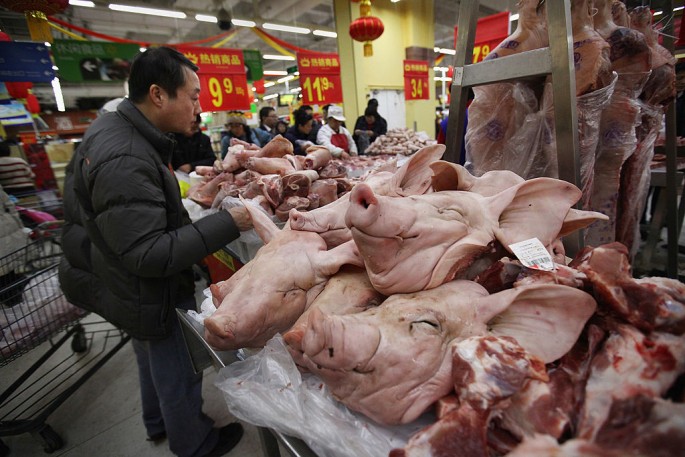The shortage of China’s favorite meat remains a lingering problem which has resulted in more dilemmas, such as high domestic prices and a sudden need for importation.
While it may hurt consumers, some economists believe that the high pork prices would help China's economy as companies earn more profit and, thereby, help the country's stock market standing.
Pork Shortage
According to Seeking Alpha, the price of pork in China has surged to as much as 50 percent higher earlier this year compared to the same period in 2015.
Apparently, Chinese supply of hog had mysteriously shrunk and continues to do so since 2014.
In fact, Oct. 2014 saw the lowest number of pork products in four years, according to the Pig Site, which cited critical numbers of sow herd from the Ministry of Agriculture's (MOA) August inventory.
Apparently, small-time pig farmers have decided to abandon ship after seeing that there would be no price increase on their trade during a time when there was too much supply of pork and pigs where stricken with a severe disease known as porcine epidemic diarrhea.
Because of this, China's very small remaining producers became too inefficient to be able to supply the country's high demand.
Last week, Producer revealed that China would most probably resort to importation, challenging Japan as the highest importer of pork.
Economic Effects
According to the outlet, China's pork import is expected to reach as much as 1 million tonnes this year, up 28 percent from last year's 777,000 tonnes.
This means that China would be the world's biggest importer of pork for 2016, replacing Japan who had long held the record.
Experts believe that China would not be able to rebuild its herd anytime soon considering how many breeders are calling it quits.
"We are not expanding. We have lost all our money. Some of our members plan to quit breeding after they get their money back from the high price," said Zhao Xuyou, a small hog farmer and member of a swine cooperative in North China's Shandong Province.
According to Zhao, the industry no longer welcomes small players like him, saying: "It is not a business for our size. It is a business for big players."
Meanwhile, some analysts believe that even if the small farmers do remain in the game, there is still the matter of decreased piglet supplies to be considered.
"Hog farms are eager to restock, but piglet supplies are in shortage following the reduction in the numbers of breeding sows," Beijing-based Orient Agri-business Consultant Co. Ltd. analyst Xiong Kuan explained to China Daily.
Despite this, economists like Essence Securities chief strategist Xu Biao still believe that the spike in pork prices would be beneficial for the country's economy.



























